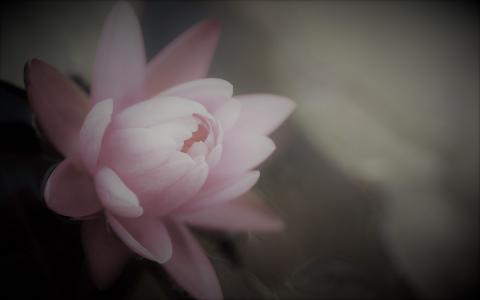
Kṣemendra
Kṣemendra was a man of many talents who straddled the realms of śāstra and kāvya. Although he composed several works in both these genres, his attainments as a poet outshine his scholarly contribution. Kṣemendra’s thoughts on literary aesthetics embedded in poetic works, though not pathbreaking, have an intrinsic value as the utterances of a prolific author. Let us examine some.
The poet communicates his aesthetic intent at the...

Parimalapadmagupta
Parimalapadmagupta or Parimalagupta is the author of the historical poem, Navasāhasāṅkacarita. This work describes the attainments of Sindhula, Bhoja’s illustrious father. A verse from this work is significant to our discussion:
चक्षुस्तदुन्मेषि सदा मुखे वः
सारस्वतं शाश्वतमाविरस्तु।
पश्यन्ति येनावहिताः कवीन्द्राः
त्रिविष्टपाभ्यन्तरवर्ति वस्तु॥ (1.4)
May the poets’ ‘eye of literature’ be open always. Great poets use it...

Trivikrama-bhaṭṭa
Among the ornate campū compositions available in Sanskrit, Nala-campū authored by Trivikrama-bhaṭṭa is the oldest. The author had a penchant for puns, which he justifies in this manner:
वाचः काठिन्यमायान्ति भङ्गश्लेषविशेषतः।
नोद्वेगस्तत्र कर्तव्यो यस्मान्नैको रसः कविः॥ (1.16)
A profusion of puns, especially when words have to be split to yield two meanings, makes speech a tough nut. Readers shouldn’t be put off by this,...

Bhallaṭa
Bhallaṭa is best remembered as the poet who put the genre of anyokti (allegorical verses) on the map. He composed a century of verses and elevated this genre, which was only a trickle before. To this day, his poem arguably remains the best of its kind. A verse from the opening section of Bhallaṭaśataka describes the nature of suggestive poetry in a memorable manner:
बद्धा यदर्पणरसेन विमर्दपूर्व-
मर्थान् कथं झटिति तान् प्...

Jinasena, the author of Pūrvapurāṇa, hailed from Karnataka. He composed this work in an age when the central tenets of literary aesthetics were taking shape, and so his observations merit close study. Let us examine a few relevant verses from Pūrvapurāṇa.
...

Yaśovarmā, Bhavabhūti’s contemporary, is the author of the now-unavailable play, Rāmābhyudaya. Eminent aestheticians such as Ānandavardhana have held this work in high regard and have quoted from it. This tells us that the play was indeed wonderful. Let us examine a verse that probably was a part of its prologue:
औचित्यं वचसां प्रकृत्यनुगतं सर्वत्र पात्रोचिता
...

In the plays written by the great poet Bhavabhūti we find passages that not only reveal his personality and learning, but also his insights into literary aesthetics. Let us examine a few such passages. The poet presents the superior qualities of his creation in a verse that appears in Mālatīmādhava:
भूम्ना रसानां गहनप्रयोगाः
सौहार्दहृद्यानि विचेष्टितानि।
औद्धत्यमायोजितकामसूत्रं
चित्राः कथा वाचि विदग्धता च॥(1.4)
A profound plot rich with...

Māgha
In the second canto of Śiśupālavadha, the poet Māgha uses ideas from various sciences to support his arguments on polity. It is appropriate that he has included literary aesthetics as well. A few observations in this section are worth noting:
बह्वपि स्वेच्छया कामं प्रकीर्णमभिधीयते।
अनुज्झितार्थसम्बन्धः प्रबन्धो दुरुदाहरः॥(2.73)
It is easy to whip up incoherent statements one after another as per one’s whim. However, to create a...

Bāṇabhaṭṭa
Among the works written by the great poet Bāṇabhaṭṭa, it is only in Harṣacarita that we come across thoughts on literary aesthetics. Although the introductory verses in Kādambarī contain a couple of statements on the art of poetry, they are not directly linked to poetic theory. Besides, they are not very illuminating. Therefore, Harṣacarita is our only source. And it does not disappoint us.
The poet has this to say about pilferers of...

Harṣavardhana has made a mark in the annals of Sanskrit literature with his three plays: Priyadarśikā, Ratnāvalī and Nāgānanda. Interestingly, the prologues of these plays are largely similar. Although there is no discussion here significant to literary aesthetics, we do find a verse that lays down certain fundamental tenets:
श्रीहर्षो निपुणः कविः परिषदप्येषा गुणग्राहिणी
लोके हारि च वत्सराजचरितं[1] नाट्ये च दक्षा वयम्।
वस्त्वेकैकमपीह वाञ्छि...
